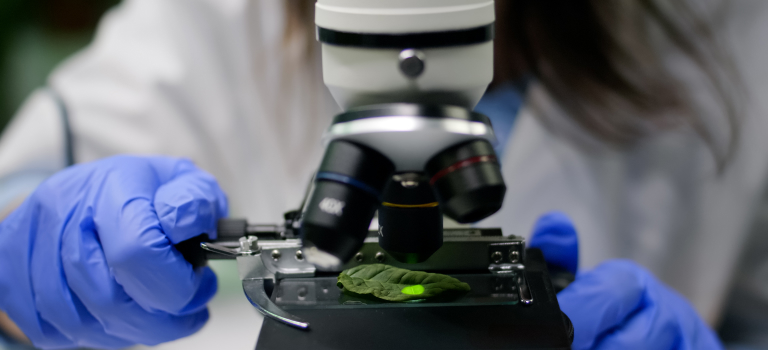Natural Science

Overview
This program is for students who desire a broad study in the natural science disciplines that include biology, chemistry, physics, and the health sciences. The natural science curriculum is designed to prepare students for careers in a variety of fields in science and industry including the life sciences, education, conservation, and as technicians in laboratory research. The program includes a three-semester math component to prepare students for the computational rigors required to be successful in the sciences. The skills acquired by natural science majors contribute greatly to their ability to work in teams and think critically. This program provides the foundation for students who plan to attend a four-year institution and major in a science area.
Program Outcomes
At the completion of this program, the student should be able to:
- Think critically using the scientific method and scientific reasoning.
- Communicate scientific information (orally and in writing) and work as part of a team to carry out project-based activities.
- Use laboratory investigations and appropriate procedures to generate accurate and meaningful quantitative data and derive reasonable conclusions from them.
- Demonstrate technical, equipment, and measurement skills essential to basic scientific inquiry.
Academic Division of Natural and Health Science
Natural Science Courses
-
Code
Course
Credits
-
- BIO 106
Nutrition w/Lab
- 4
-
- BIO 111
General Biology I w/Lab
- 4
-
- BIO 112
General Biology II w/Lab
- 4
-
- BIO 131
Anatomy & Physiology I w/ Lab
- 4
-
- BIO 132
Anatomy & Physiology II w/ Lab
- 4
-
- BIO 160
Marine Ecology w/Lab
- 4
-
- BIO 204
Genetics w/Lab
- 5
-
- BIO 251
Microbiology w/Lab
- 4
-
- CHE 103
Introduction to Forensic Science
- 4
-
- CHE 121
General Chemistry I w/Lab
- 4
-
- CHE 122
General Chemistry II w/Lab
- 4
-
- CHE 141
Introduction to Chemistry
- 4
-
- CHE 213
Organic Chemistry I
- 5
-
- CHE 214
Organic Chemistry II
- 5
-
- ENV 101
Introduction to Environmental Studies
- 4
-
- ENG 101
English Composition I
- 3
-
- ENG 102
English Composition II
- 3
-
- PHY 111
General Physics I
- 4
-
- PHY 112
General Physics II
- 4
-
- MAT 103
College Algebra
- 3

View Current Semester Courses>>
Start your education at Quincy College this fall. Our online and blended curriculum makes it easy for you to stay safe and earn your degree!
You might also be interested in...
-

Health Sciences
The Health Sciences program utilizes an interdisciplinary approach in the study of health sciences in both biological sciences and liberal arts.
-

Biotechnology & Good Manufacturing Practice
The Quincy College Biotechnology & Good Manufacturing Program is designed to prepare students for entry-level positions in the biotechnology industry
-

Medical Laboratory Technician
The MLT program consists of didactic and campus laboratory courses designed to progress the student through a two-year program.
